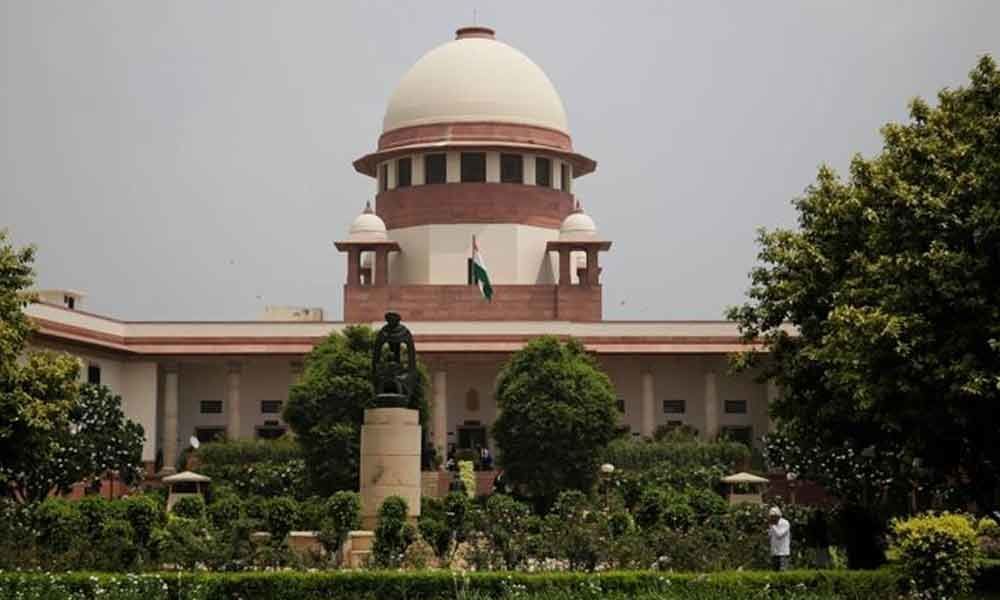Live
- Scientists develop flexible near-infrared devices for wearable sensors
- Transforming education for the workforce of tomorrow
- Despite global odds, GDP growth at 6-7% good for India
- IIFL Home Fin to raise Rs 500 cr
- Sensex, Nifty drift lower on profit booking
- Jagan treated cadres as ‘subordinates’, alleges Grandhi
- Mpower’s survey on edu loans
- IIP growth falls to 3.5% in Oct
- Easing food prices lower retail inflation to 5.48% in November
- Space allocation for packaging units at MSME parks on anvil
Just In
Magistrate can order accused to give voice sample: Supreme Court


The Supreme Court on Friday ruled that a Judicial Magistrate has the power to direct an accused to give his/her voice sample for the purpose of investigation
New Delhi: The Supreme Court on Friday ruled that a Judicial Magistrate has the power to direct an accused to give his/her voice sample for the purpose of investigation, saying that "procedure is the handmaid" of justice and "cannot be permitted to thwart the fact-finding course in litigation".
A three-judge bench of Chief Justice Ranjan Gogoi and Justices Deepak Gupta and Sanjiv Khanna said that a Judicial Magistrate can order any accused to give their voice sample even without their consent.
"We unhesitatingly take the view that until explicit provisions are engrafted in the Code of Criminal Procedure by Parliament, a Judicial Magistrate must be conceded the power to order a person to give a sample of his voice for the purpose of investigation of a crime.
"Such power has to be conferred on a Magistrate by a process of judicial interpretation and in exercise of jurisdiction vested in this Court under Article 142 of the Constitution of India," the bench said.
The bench ruling came while hearing a plea by cheating accused Ritesh Sinha challenging a July 9, 2010 high court order upholding the trial court order for him to give voice sample to the investigating officer of the case.
Sinha was accused of cheating people by taking money on pretext of providing them police jobs, and an FIR was lodged against him and his associate Dhoom Singh in December 2009 in Uttar Pradesh''s Saharanpur.
The police wanted to verify whether the recorded conversation in the mobile phone was between Sinha and Singh and therefore, needed Sinha''s voice samples.
"Procedure is the handmaid, not the mistress, of justice and cannot be permitted to thwart the fact-finding course in litigation. We would like to proceed in the matter keeping the above view of this court in the backdrop," the court said.
"We have already expressed an opinion that what may appear to be legislative inaction to fill in the gaps in the statute could be on account of justified legislative concern and exercise of care and caution.
However, when a yawning gap in the statute, in the considered view of the court, calls for temporary patchwork of filling up to make the statute effective and workable and to sub-serve societal interests, a process of judicial interpretation would become inevitable," the court said.

© 2024 Hyderabad Media House Limited/The Hans India. All rights reserved. Powered by hocalwire.com






